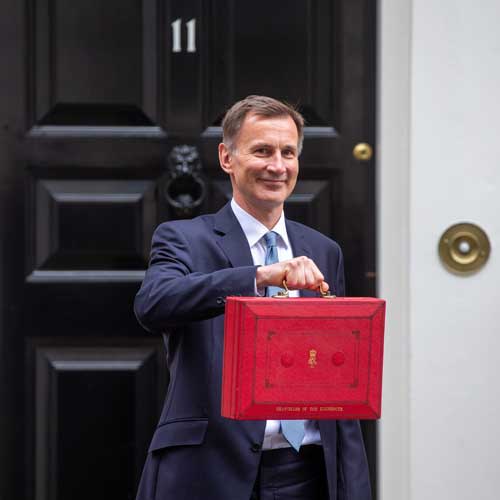Chancellor Jeremy Hunt has made significant changes to the R&D tax credit system along with increased support for those businesses that make a loss while they develop new treatments and technologies.
Chancellor Jeremy Hunt announced changes to R&D tax credits in his Autumn Statement, recognising the important role that research & development (R&D) plays in driving economic growth and the benefits they can bring to society.
As part of the Government’s plans to “increase productivity and promote growth,” Hunt said he would create a new simplified R&D tax relief by combing the existing research and development expenditure credit (RDEC), which was created for larger companies, with the small and medium-sized enterprises (SME) scheme.
They will be merged from next April, although this is effectively the abolition of the SME scheme for most companies. The new approach will be like the current RDEC scheme, with a payable gross 20% credit. It will take effect for accounting periods starting on or after 1 April 2024, which means it is not likely to impact most companies until spring 2025.
Supporting loss-making companies
The major change will be in the tax paid on the credit for loss-making companies. Since April 2023, RDEC has been taxed at the main rate of corporation tax, 25%. This will continue for profitable companies but will be reduced to 19% for loss-making businesses, which means that the net credit for those companies will increase from 15% to 16.2%.
"Since April 2023, RDEC has been taxed at the main rate of corporation tax, 25%. This will continue for profitable companies but will be reduced to 19% for loss-making businesses"
Alongside this, the SME intensive R&D scheme remains, with an effective rate of relief of up to 26.97%. Companies qualify for this if their qualifying R&D expenditure is at least 30% of their total spend in the accounting period.
Building on success
The Government’s focus on R&D tax relief reflects the success of the scheme, which was originally launched for SMEs in 2000. Provisional figures released in September revealed that £7.6 billion was claimed by companies in the tax year 2021 to 2022, an 11% increase on the previous year. This corresponds to £44.1 billion of R&D spending.
The estimated number of claims during the year was 90,315, an increase of 5% on the previous year, while the average value of each claim increased by 6%. The majority of claims came from the Information & Communications, Manufacturing, and Professional, Scientific & Technical sectors.
The Chancellor also announced a series of measures to support innovation, including a £500 million investment to fund innovation centres to make the UK an artificial intelligence powerhouse. He also launched a call for evidence on how to make film and TV tax credits more generous to support the UK’s globally renowned UK film industry. And he announced £5 million for Imperial College and Imperial College Healthcare NHS Trust to set up the Fleming Centre to inspire the next generation of world-changing innovations.
More information
Learn more about R&D and how Markel Tax can assist with navigating the upcoming changes.
Research & Development